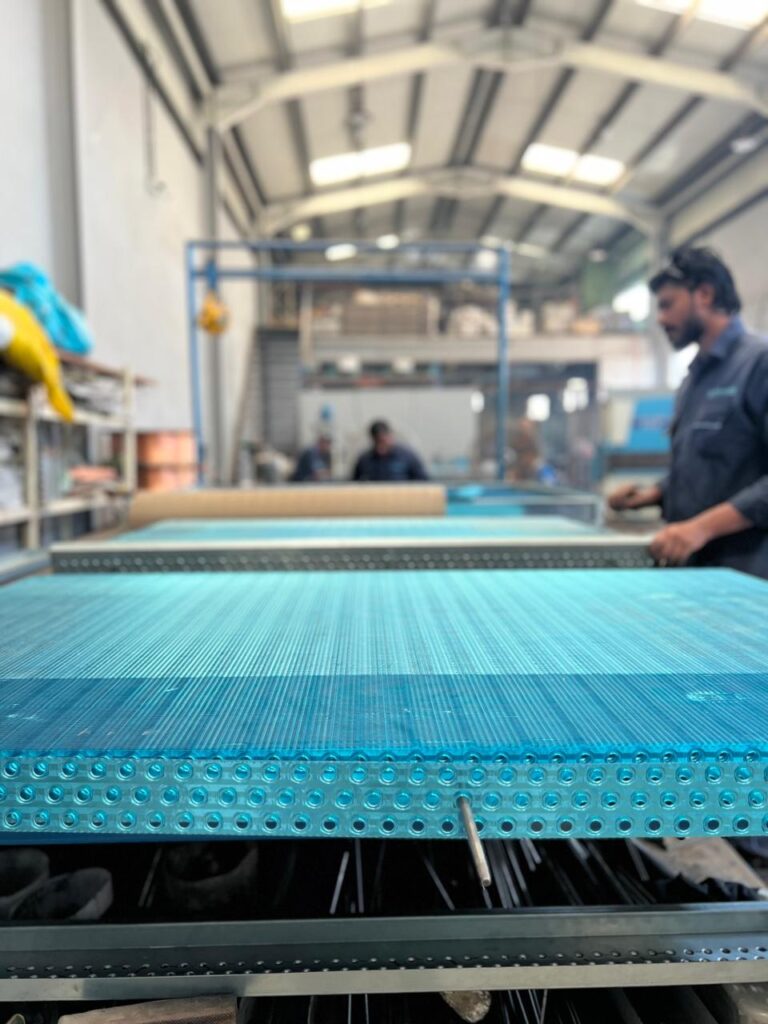Call Us 24/7
+971 55 817 1170Send Us Mail
sales@altabreed.comCommon Condenser Coil Problems and How to Avoid Them
x
Call Us 24/7
+971 55 817 1170Send Us Mail
sales@altabreed.com
Condenser coils are the unsung heroes of your AC unit, working tirelessly outside to release the heat absorbed from your home. A dirty or faulty condenser coil can significantly reduce the efficiency of your AC unit.
Just like a car radiator, condenser coils rely on airflow to function effectively. However, unlike a car radiator, the condenser coil of your AC unit does not have a constant stream of air. They are often located outside where they are exposed to the elements and vulnerable to accumulation of dirt, grime, and debris over time. This buildup acts like a blanket, trapping heat and making your AC unit work much harder to cool your home.
Read on to learn more about this and other problems that plague condenser coils and how to prevent them.
Are you experiencing a sweltering home on a hot summer day? If your AC unit is struggling to keep your home cool, the condenser coil could be the problem. Some of the tell-tale signs that the condenser coil is the issue with your AC unit are:
Like any other piece of machinery, the effectiveness of condenser coils reduces over time due to wear and tear. However, certain factors contribute to the premature failure of condenser coils.
Even with proper maintenance, condenser coils, like any mechanical part, eventually deteriorate due to natural wear and tear. A properly maintained condenser coil can last anywhere from 10 to 15 years.
The key takeaway here is proper maintenance. Regular cleaning and professional checkups by a qualified HVAC technician can significantly improve the coil’s efficiency and longevity.
Exposure to harsh elements like extreme temperatures, high levels of pollutants, and salt, takes a toll on condenser coils, accelerating their wear and tear. Similarly, the frequency and intensity of the use of your AC unit contributes to the coil’s wear and tear.
By keeping these factors in mind and prioritizing regular maintenance, you can keep your condenser coil in optimal condition for many years.
Condenser coil problems do not always require a complete replacement. Most of the time, the problem with your condenser coil can be repaired.
Here’s a breakdown of repair possibilities:
It is possible to repair a condenser coil. However, if there is extensive damage, like large leaks, severe fin deterioration, and severe corrosion, a complete replacement of the coil might be necessary.
Additionally, in some cases, repairing an old heavily damaged condenser coil might be more expensive than replacing it with a new, more efficient unit.
Consider consulting a qualified HVAC technician if you are not sure whether you should repair your condenser unit or replace it with a new one.
While some signs of a failing condenser coil are readily apparent, like reduced cooling or ice buildup, a more comprehensive diagnosis might be necessary. Here’s how you can approach testing a condenser coil:
Visual Inspection:
The first step is a simple visual inspection. Grab a flashlight and head outside to your condenser unit. Look for the following:
Professional Testing:
While a visual inspection can reveal some issues, a qualified HVAC technician can perform a more comprehensive test to assess the health of your condenser coil. Here’s what they might do:
Electrical Checks: They might also perform electrical checks on the condenser coil and fan motor to ensure proper operation.
If the condenser coil is the only failing component and your AC unit is relatively new (less than 10 years old), replacing only the condenser coil might be the more cost-effective option. However, if your AC unit is old or has other failing components, consider replacing the entire unit.
Whether to replace the coil or the whole AC system depends on your specific situation. If you are not sure what to do, consult a HVAC technician. They can assess the whole system, weigh the pros and cons of replacing the coil or the whole unit, and recommend the more cost-effective solution.
Proactive maintenance is key to keeping your condenser coil healthy and your AC unit running smoothly. Here are some simple yet effective ways to prevent problems:
These steps take minimal effort but yield significant benefits in terms of efficiency, lifespan, and energy savings for your AC unit.
Healthy condenser coils are the unsung heroes of your AC system, ensuring efficient cooling and keeping your energy bills in check. By understanding the common problems that can plague these coils and taking proactive steps like regular cleaning and professional maintenance, you can extend their lifespan and keep your home cool and comfortable all summer long.
For top-quality condenser coils built to last, look no further than Al Tabreed. We are committed to innovation and providing the most efficient and reliable components for your AC unit. Check out our store or contact us for more information about condenser coils.
Progressively maintain extensive infomediaries via extensible nich. Capitalize on low hanging fruit. a ballpark value added is activity to beta test. Override the digital divide with additional click throughs from fruit.

No products in the cart.
